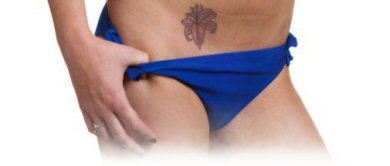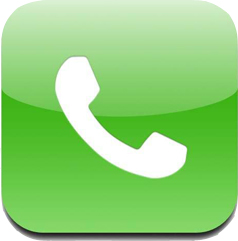Rejuvi Tattoo Removal – Q&A

Redeem Clinic
Common Questions Rejuvi tattoo removal cream
1. I hear that tattoo removal cream just doesn’t work?
2. I am worried about the Rejuvi method leaving scarring?
3. Why is aftercare so important?
4. Can I use the Rejuvi methods if I have already had a laser course on my tattoo?
5. Can I remove a large tattoo?
6. How often do I need the treatment?
7. How much will it cost to get my tattoo removed?
8. Are there any lasting side effects?
9. How soon will I see the results?
10. Can all pigments be removed?
11. Is this treatment is suitable for me?
12. What’s in the removal cream?
13. I have a home made tattoo, will the Rejuvi system work on this?
14. I have permanent make up, can the Rejuvi system remove this?
1. I hear that tattoo removal cream just doesn’t work?
Rejuvi * should not be confused with skin application tattoo removal cream, yet has sometimes received bad press through a perception that it is the same product. The makers of skin application removal creams state that by rubbing the cream into the tattoo over a few months the ink is broken down and absorbed into the body. However despite some convincing before and after pictures, medical experts say the idea that by simply rubbing on a cream could erase a permanent tattoo is nonsense.
Dr Patrick Bowler is a surgeon doctor and director of Court House Clinics. He told Sky News: “It is too good to be true. There’s no scientific evidence that these things work. I think they’re really expensive and there’s no given of any outcome. My advice would be to avoid them.”
The Tattoo Club of Great Britain says the nature of tattoos means removal is not possible with such a cream. Lionel Titchener, who set up the club, told Sky News: “The pigment is injected right under the skin. I cannot understand what external cream could safely dissolve the tattoo. I would urge people to speak to their doctor before putting anything on their skin.”
Go to Top
2. I am worried about the Rejuvi method leaving scarring?
Any form of needles entering the skin can result in the risk of scarring, for example poor application methods of the original tattoo could have already scared the skin yet this is currently covered by the tattoo. With over 10 years and research and development the Rejuvi tattoo extraction methods have been shaped and improved to the degree that leading technicians are now reporting only an approximate 5% risk of scarring. This is less than the average laser tattoo methods. Redeem are anxious to ensure they are improving even further on the risk of scarring and are the only UK clinic that insist on patch testing prior to procedures taking place. In addition through the consultation period Redeem often dissuade patients from the treatment if that patient should have skin that is easily susceptible too and has a history of scaring. Redeem want to be known as the countries leading care centre for tattoo removal and clearly understand that patients concerns come first and strive to ensure the client has total piece of mind before any procedures take place.
Go to Top
3. Why is aftercare so important?
Injecting Rejuvi * extraction cream into the tattoo is only half of the process for this method of tattoo removal. Once the cream has bonded to the tattoo inks it needs to be expelled by the body, this can take time. As the body pushes the ink to the surface of the skin it forms a scab over the surface of the tattoo. To prevent infection and reduce the risk of any scaring it is important that the treated area is kept dry and clean at all times. Moisture is susceptible to bacteria growth and by keeping the treated area dry at all times then the risk of infection is greatly reduced. The Rejuvi * process also needs the scab to dry out and fall off naturally in order to get the best results and reduce the risk of scarring. Like normal scabs that can leave scars if picked, due to the Rejuvi cream penetrating the skin at a greater depth than the average graze then any picking of the scabbed area heightens the risk of scaring. Once the scab has fallen off, new fresh skin is formed and to increase the healing process and reduce redness patients are strongly advise to apply silicon patches and soothing cream. Following the strict aftercare procedures go a long way to giving you the great results Redeem can offer and the clients are looking for.
Go to Top
4. Can I use the Rejuvi* methods if I have already had a laser course on my tattoo?
Yes Rejuvi * can be used after laser, yet is very dependant on the number of laser treatments that have taken place and the strength of the laser. Laser removal can cause subdermal scarring and permanently alter skin pigmentation. Laser can also alter the chemical properties of the ink pigments which make them respond less well to the Rejuvi *system. With this in mind Redeem strongly express caution when treating pre-lasered tattoos. If you have recently had laser treatment then it will be necessary to wait eight to twelve weeks for it to heal before treatment. Accordingly it is important that you always advise the technician if you have already had any form of laser tattoo treatment.
Go to Top
5. Can I remove a large tattoo?
The Rejuvi * system is designed only to remove small tattooed areas at a time. It heavily relies on the skins natural healing process to return the skin to its pre-tattoo health, therefore it will only be applied to small areas. For large tattoos the tattoo will be broken down into smaller areas and worked on individually.
Go to Top
6. How often do I need the treatment?
The result will vary with amateur and professional tattoos as well as individuals circumstances. Professional tattoos tend to have a different variety to the mixture of inks/chemicals and tend to penetrate the skin further. So the more the colour and its complexity the more treatment is required. Some amateur tattoo can be removed in only one session (yet rare). On average, plan for at least 3-4 treatments. This said there are no guarantees and the amount of treatments required for each tattoo will vary, however when considered against the equivalent laser treatments Rejuvi typically remove tattoos in at least half the amount of sessions (and remove all colours unlike laser).
Go to Top
7. How much will it cost to get my tattoo removed?
Due to the high degree of variance in tattoos i.e Size, colour, density, body area, home made, professional etc it is very difficult to give an exact figure for tattoo removal using the Rejuvi * methods. Redeem understand their market place very well and want to ensure that as well as offering the highest degrees of professional standard that they also meet their customer expectations with regards to price. With a typical half hour sessions being £80 pounds (costs can fall to £40 in some instances, subject to circumstances), Redeem give their price promise guarantee of returning the clients money should they find their services cheaper elsewhere. When compared against the average 10-12 sessions usually required to remove a tattoo by laser and the average 3-4 sessions required with Rejuvi, then Redeem can be said to offer a considerable saving for tattoo removal in the region.
(terms apply)
Go to Top
8. Are there any lasting side effects?
There have been no lasting side effects documented arising out of the removal treatment. The area may be sore for around a week after treatment and following the final treatment the area may appear slightly redder however this should fade to the normal skin colour after a few months. None of the cases in the Cosmetic Dermatology April, 2001 study of 98 patients demonstrated destruction of the skin’s natural pigment unlike laser where hypo pigmentation and hyper pigmentation can be more common.
Go to Top
9. How soon will I see the results?
This treatment is very effective at removing body tattoos and permanent makeup. The crust that forms over the area should primarily take on the colours of the underlying tattoo, as the crust falls away it will take the unwanted tattoo ink with it. It is likely that parts of the tattoo will be almost completely gone on just the first treatment. Your tattoo can be completely removed * in just a matter of months, compared to years that it takes with laser.
Go to Top
10. Can all pigments be removed?
Yes the process acts upon all pigments equally, unlike laser which is ineffective against certain pigments. The success rate of tattoo colour removal is 100% for permanent makeup and over 92% for body tattoos.
Go to Top
11. Is this treatment is suitable for me?
The treatment is suitable for most people, however a thorough consultation is carried out prior to any treatment. Generally if you have tolerated the original tattoo process then this treatment is very similar. Treatment should not be carried out during pregnancy or breast feeding (due to aftercare considerations such as potential infections and medications). Certain other medical conditions may be a bar to treatment, or make it necessary to postpone treatment or seek further clarification from your GP. Darker skin types are more prone to keliod scarring and this process is not recommended for those whose skin type is 5-6 on the Fitzpatrick skin type test. This can be discussed at the consultation process.
Go to Top
12. What’s in the removal cream?
The removal cream * has been specifically developed for the purpose of removing tattoos by bonding with the tattoo ink and causing its expulsion from the body. The remover is inorganic thus it cannot be absorbed or broken down by the body. It is also a mild alkaline solution (9.5-9.8 ph Many of the ingredients can be found in common food and cosmetic products. The ingredients in order of quantity are as follows Water (carrier solution), zinc oxide, magnesium oxide, calcium oxide (inorganic oxides to bond with pigment particles), n-propanol (solvent for drying), Triethlaomine (PH balancer), benzoic acid (Product preservative). Only a very small amount of cream is required per treatment typically less than 2-3ml most of which does not penetrate the skin, exposure is minimal and chemical concentrations in the cream present little or no risk. The treatment has been approved by various health and safety officers around the UK and happily covered by our insuring body.
Go to Top
13. I have a home made tattoo, will the Rejuvi* system work on this?
Yes, usually the ink in home made tattoos is less resilient than that used in professionally applied tattoos and can be removed very easily, however unlike professional tattoos ink depth can be very random which may make additional treatments necessary.
Go to Top
14. I have permanent make up, can the Rejuvi system remove this?
Yes, this treatment will completely remove permanent make up. The only place its not suitable for is sensitive areas near the eyes, or where there is a risk of moisture contamination (lips).
Go to Top
15. More Questions?
Redeem are happy to answer any further questions you have that are not covered on our Q&A page. Simply give us a call or book in for your FREE consultation.
Go to Top
(*Our aim is keep all our clients/potential clients as informed as well as attempting to be as ethical as possible in relation to all the services we offer and consequently it should be noted that Rejuvi tattoo removal is not an exact science and results can vary between each clients. Although total removal is our ultimate aim some may experience only partial removal due to factors outside our control)












